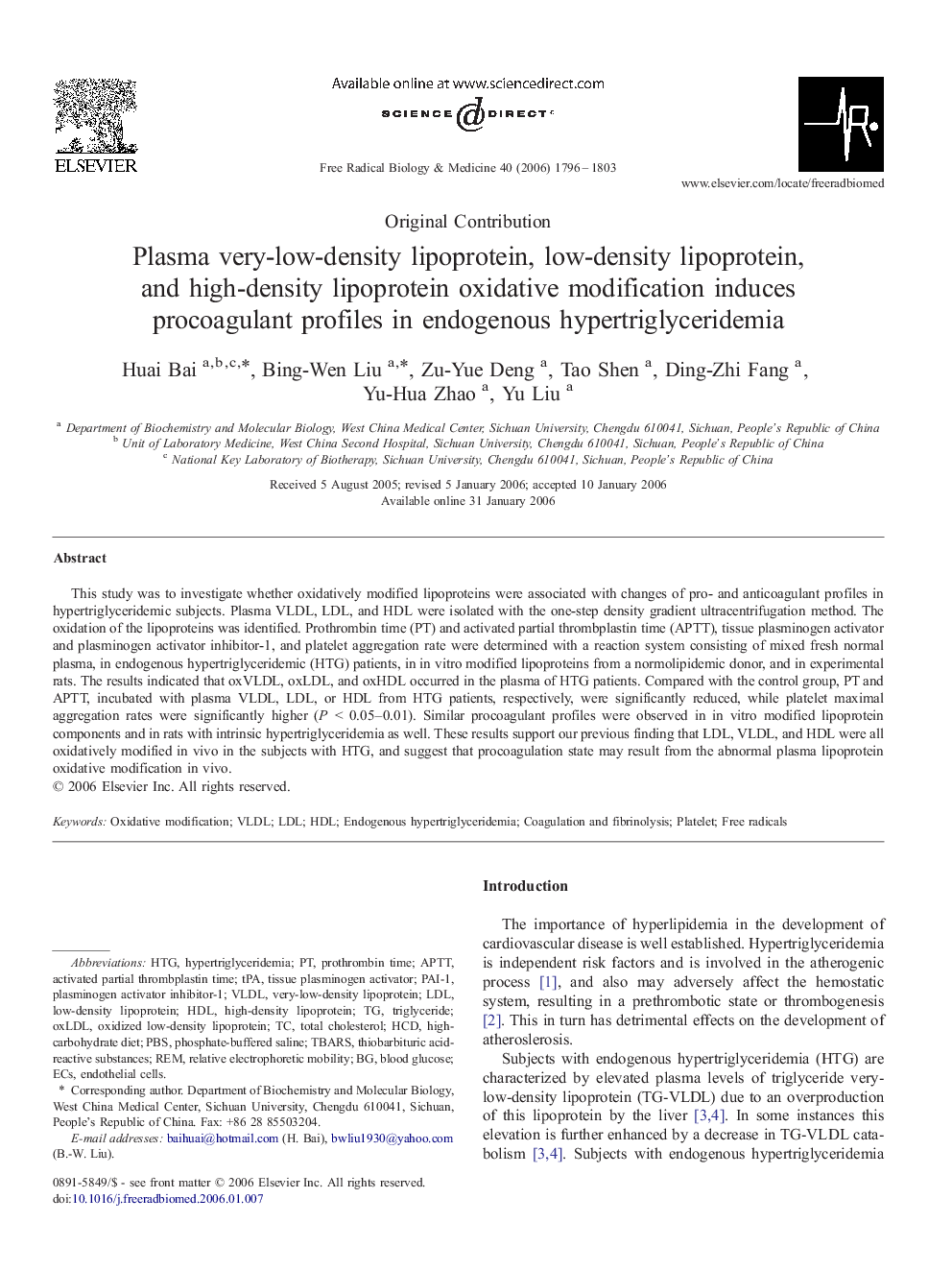| کد مقاله | کد نشریه | سال انتشار | مقاله انگلیسی | نسخه تمام متن |
|---|---|---|---|---|
| 1911925 | 1046847 | 2006 | 8 صفحه PDF | دانلود رایگان |

This study was to investigate whether oxidatively modified lipoproteins were associated with changes of pro- and anticoagulant profiles in hypertriglyceridemic subjects. Plasma VLDL, LDL, and HDL were isolated with the one-step density gradient ultracentrifugation method. The oxidation of the lipoproteins was identified. Prothrombin time (PT) and activated partial thrombplastin time (APTT), tissue plasminogen activator and plasminogen activator inhibitor-1, and platelet aggregation rate were determined with a reaction system consisting of mixed fresh normal plasma, in endogenous hypertriglyceridemic (HTG) patients, in in vitro modified lipoproteins from a normolipidemic donor, and in experimental rats. The results indicated that oxVLDL, oxLDL, and oxHDL occurred in the plasma of HTG patients. Compared with the control group, PT and APTT, incubated with plasma VLDL, LDL, or HDL from HTG patients, respectively, were significantly reduced, while platelet maximal aggregation rates were significantly higher (P < 0.05–0.01). Similar procoagulant profiles were observed in in vitro modified lipoprotein components and in rats with intrinsic hypertriglyceridemia as well. These results support our previous finding that LDL, VLDL, and HDL were all oxidatively modified in vivo in the subjects with HTG, and suggest that procoagulation state may result from the abnormal plasma lipoprotein oxidative modification in vivo.
Journal: Free Radical Biology and Medicine - Volume 40, Issue 10, 15 May 2006, Pages 1796–1803